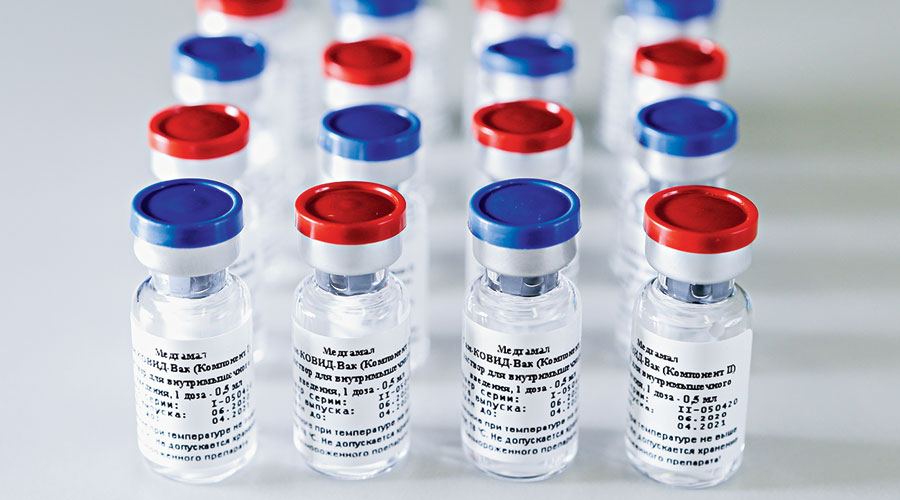The Union Health Ministry has released a communication strategy to support the Covid-19 vaccine rollout in India, something the Drug Controller General said on Thursday was likely to happen in the New Year.
The strategy, unveiled on Thursday, seeks to disseminate accurate information by alleviating apprehensions and ensuring the vaccine’ acceptance. The 88-page document details information to guide national, state and district level communication activities to enable information about COVID-19 vaccines and vaccination process reaches all people, across all states in the country.
"The communication strategy that supports the rollout of the Covid-19 vaccine in India seeks to disseminate timely, accurate and transparent information about the vaccine(s) to alleviate apprehensions, ensure acceptance and encourage uptake," it said.
The communication strategy was released on a day the Drug Controller General of India, V.G. Somani, offered the first hint of a timeline regarding the availability of the vaccine. Speaking at a webinar, Somani said the most important thing was that industry and research organisations have stood the test of time.
He said vaccine candidates have got the funding and also talked about the efforts made by the Department of Biotechnology. "...and probably we will have a very happy New Year with something in hand. That's what I can hint at," he said.
The Serum Institute of India, Bharat Biotech and Pfizer have applied to the DCGI seeking emergency use authorisation for their Covid-19 vaccine candidates and are awaiting approval.
Somani said the approval process was fast-tracked in view of the pandemic by quickly processing all applications, allowing parallel phase 1 and 2 trials without waiting for complete data.
"There has been no compromise on the safety or efficacy of the data. The only thing is that the regulator has accepted partial data," he said.
An expert panel in the Central Drugs Standard Control Organisation (CDSCO) that met on Wednesday to consider emergency use authorisation applications by SII for the Oxford Covid-19 vaccine and Bharat Biotech's 'Covaxin' will reconvene on January 1 to further deliberate on the matter.
The strategy document
According to the health ministry, the strategy document aims at managing and mitigating any potential disappointment expressed by unmet demand for the vaccine or “eagerness” amongst people, and addressing vaccine “hesitancy” that could arise because of apprehensions around safety, efficacy or misconceptions.
It also aims to provide information on potential risks and mitigate unintended crisis during the introduction and rollout. “The strategy also seeks to build trust and enable greater confidence in the COVID-19 vaccine amongst all people by employing transparency in communication, while also managing any mis/disinformation and rumours around it," it said.
The Health Ministry intends to achieve this in three ways. Firstly, using the social influence or endorsements from experts and official voices to spell out the process of immunisation (where, how, who, when date and time); emphasise on the safety and efficacy of vaccines and explain the decision to conduct the drive in a phased manner.
Secondly, the ministry intends to establish a National Media Rapid Response Cell (NMRRC) under its ambit to ensure preparedness through media monitoring and social listening to respond in real-time. It will also unfold media and public discourse through extensive monitoring of print, electronic and digital media.
Thirdly, this will be achieved by involving community mobilisers and frontline workers to engage with the community at various levels through community consultations, faith leaders and religious meetings, engaging youth, civil-society organisations, self-help groups, panchayats and other community-based platforms.
Key areas
The four key areas that will be addressed as part of interventions under the strategy are -- giving information on COVID-19 vaccines, addressing vaccine hesitancy, building vaccine eagerness along with maintaining and sustaining COVID appropriate behaviours.
In case of any adverse effects following immunisation (AEFI), the strategy emphasises on supporting the mobilisers and health workforce in managing crisis situations by appealing to the community to stay calm while waiting for a proper diagnosis and prevent aggressive behaviour against health











